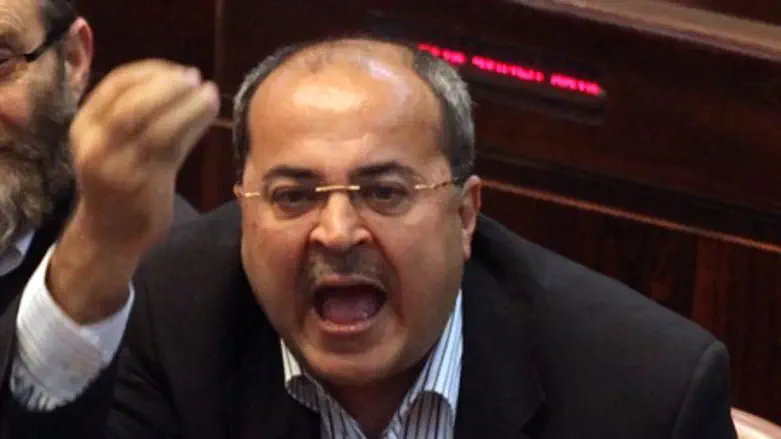
The Knesset Constitutional Committee on Sunday authorized an increase in the electoral threshold for a party's entry into the Knesset. In order for to be seated in the Knesset in the next election, a party will have to win at least 4% of the vote, which translates into at least three Knesset seats. If a party cannot garner the minimum number of votes to win at least that number of seats, the votes will be disqualified, as they cannot be applied to another party.
The measure is expected to hurt smaller parties, and especially Arab parties, which are notorious for their political rivalries. During a discussion prior to the vote, MKs from Arab parties slammed the change. Arab MK Jamal Zahalka said that “this law will destroy the independence of the Arab representation in the Knesset. It could be that this change is legal, but it stinks.”
MK Dov Hanin, chairman of the mixed Arab-Jewish Hadash party, said that “history will judge those who help democracy, and those who hurt democracy.” Addressing Likud-Beiteinu members of the Committee, Hanin said “you are participating in a process that should not be taking place.”
If the measure stands, Arab parties will have little choice but to unite in order to remain relevant, something that has proven to be very difficult in the past.
Hareidi opposition
Hareidi parties, although they have long found ways to unify in the wake of previous increases in the electoral threshold, are also opposed to the change.
MK Uri Maklev (UTJ) said that the change was the result of “the program of Yesh Atid to dictate and disempower minorities. If this law had been in existence when Yisrael Beiteinu – whose leader Avigdor Lieberman is a main proponent – was first established, that party would not exist today, because it did not reach the threshold now required of all parties. This is not a matter of 'good government,' but one of hypocrisy on the part of the large, established parties.”
Sunday's approval of the measure may not be the final word on the matter; the Committee's legal advisor is of the opinion that raising the threshold to 4% is in conflict with the Basic Law on Knesset representation. As such, it is likely that one or more of the small parties will challenge the measure in a High Court petition, with the court having the final say on how many votes a party needs to get into the Knesset.